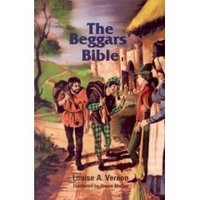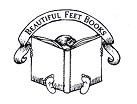Men of Iron
, by Howard Pyle
(originally published 1891)
I have looked forward for some time to reading this book to my boys because I have heard high praise from various quarters. However, this was disappointing. The book starts slowly, and it took some perseverance to go on. Eventually though the book did pick up, and there were some great scenes. However, it did require a fair bit of work throughout to make it intelligible to my boys. That may be one issue- perhaps the book would be better for a slightly older audience (my boys who were listening are 9, 8 and 6).
The main figure in the story is Myles Falworth, and the setting is early 15th century England. Myles’ father Lord Falworth has fallen out of favor with the king, eventually being branded a traitor. Myles therefore grows up away from the finer things of life but eventually is taken in as a squire in the household of Lord Mackworth, a friend of his father’s. The main thrust of the story which gradually unfolds is the attempt by Myles to restore his father’s honor.
Early on in the story I was a bit concerned about the portrayal of the main character. Typically in these books the main character is presented as a role model for the young readers (or listeners). However, Myles is rebellious and strong-willed. It is primarily directed at authority which he does not respect, but it is not a positive picture. At first I was not sure what to do with this, not knowing what exactly the author was going to do with this- e.g., Is the author going to portray this as positive? Is this perspective going to be corrected eventually or will this persist throughout the book? My 9 year old son would ask frequently in this portion of the book, “Was it ok for him to do that, Daddy?” This did present some opportunities for discussion, but I did not want to read a book to my boys that presented as heroic a boy who consistently challenged authority. It would have been helpful for me on the front end to know that the author would eventually come around to show that this behavior was not right. Eventually you learn that Pyle is presenting Myles as a strong-willed young man with many admirable traits but who also needs to learn to submit appropriately to the yoke of proper authority. If you know that going into the story it can be very helpful. Eventually, when this was made clear and we discussed it, my 9 year old said, unprompted, “Oh, this story shows that the main character does not always do what is right. In the other stories they usually do, but we can’t always do right can we, Daddy?” He was not excusing sin, but grasping that this provided an honest assessment of the struggle with self discipline.
In the story there are a number of moving portraits of honor and courage, of loyalty, of a son’s love for and devotion and loyalty to his father, etc. There are parts that read well and are exciting. The biggest negative in the end for us was that it was not as compelling a read as many other books we have read (see for example the previous post and links there to other books by Allen French).
Lastly, the edition we have is an abridged edition. I do not typically favor abridged editions, but this just happened to be the copy I found in a bookstore in Scotland. So it was what we have. Perhaps some things would be improved in reading the full edition.



